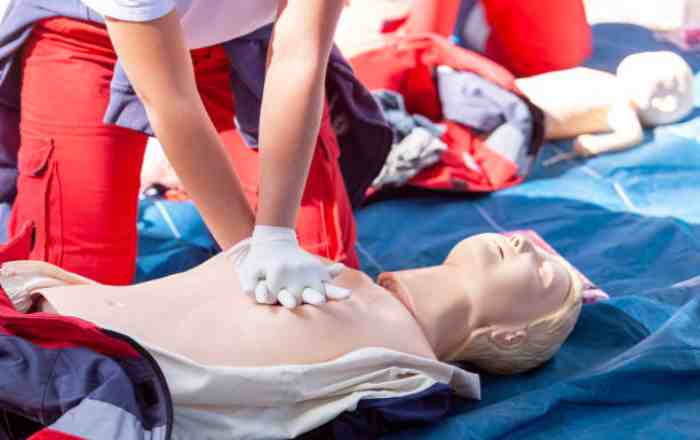If you’re looking to improve the health and safety of your employees, consider offering CPR training in your workplace. It can save lives, reduce legal liability, foster a safety culture, and increase employee morale.
CPR, or cardiopulmonary resuscitation, is a lifesaving technique used to keep blood and oxygen flowing when someone has an emergency like cardiac arrest.
Save Lives
Cardiac arrest victims have a greater chance of survival if they receive help within the first few minutes after an attack. This is why it’s so important to have employees trained in CPR and the use of an automated external defibrillator (AED).
The sooner someone with a cardiac episode gets treated, the less damage they will suffer. This will also result in a shorter recovery period and lower medical bills.
Having your employees trained in CPR, first aid and how to use an AED can help to reduce the number of workplace accidents and emergencies. It will also increase the safety of your workplace and make it more a safe environment for everyone in and out of work.
Providing your employees with this training doesn’t cost much and it can save lives in the long run. It can also help you to avoid legal liability, foster a safety culture and boost employee morale. Employees want to feel like their company cares about them and cpr training Ottawa is a great way to do this.
Reduce Liability
Every second counts in a medical emergency situation, and CPR and the use of automated external defibrillators (AED) can make all the difference. Employees who are trained in these lifesaving techniques can keep someone in cardiac arrest alive until EMS arrives on the scene.
It also helps reduce liability for businesses by making sure employees know what to do in the event of a medical emergency. This can be especially important for employees who work alone or in remote areas.
CPR and first aid training help people stay calm and focused in stressful situations. The training also teaches them how to act quickly and decisively in an emergency, which will help them avoid any accidents or injuries at the workplace. This way, employees are able to focus more on their work without worrying about the safety of themselves or others. This will also build trust and morale in the workplace. They will be more willing to come to your company for their next job, and they will feel safe at work.
Increased Morale
CPR training gives employees the confidence to act quickly and effectively in an emergency situation. It can also help employees stay calm and not panic, which is critical during a medical emergency. In addition, employees will learn how to use a defibrillator and how to contact emergency services.
Moreover, CPR training helps employees feel important and responsible for the wellbeing of co-workers. It is a great team-building exercise that makes everyone feel involved and valuable in the company.
Employees are more likely to work for a company that consistently shows care and concern for their health. Sponsoring first-aid and CPR training in the workplace is a way to show employees that the company values them. It is an investment that will pay off in the long run, as employees will feel more confident about their ability to handle an emergency. The skills they learn will not be limited to the workplace; they will apply them to their daily lives, as well.
Better Teamwork
When everyone on the team is aware of how to respond during a medical emergency, quick collaboration can be the difference between life and death. CPR training teaches employees how to collaborate effectively with coworkers during a crisis.
Employees who are certified in CPR will also know how to use an Automated External Defibrillator (AED). This device can restart the heart of someone who is in cardiac arrest and can make all the difference during a medical emergency.
Conlcusion:
Research has shown that teams are more effective in resuscitation than individuals. The results of a study using the team-based CPR educational plan showed that team cooperation significantly improved closed-loop communication, shortened resuscitation time and reduced errors by individual rescuers (13). This shows that group CPR classes can help improve workplace morale as employees learn to work together as a team during emergencies. Having group training also makes it easy to keep track of who is certified in CPR so that all employees have the same expiration date.




